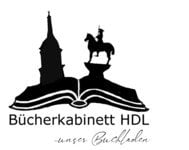Ibsen's 1879 play shocked its first audiences with its radical insights into the social roles of husband and wife. His portrayal of the caged 'songbird' in his flawed heroine Nora remains one of the most striking dramatic depictions of the late 19th century woman.This revised edition contains introductory commentary and notes by Sophie Duncan, which offer a contemporary lens on the play's gender politics and consider seminal productions of the play into the 21st century.METHUEN DRAMA STUDENT EDITIONS are expertly annotated texts of a wide range of plays from the modern and classic repertoires. A well as the complete text of the play itself, this volume contains: - A chronology of the play and the playwright's life and work- an introductory discussion of the social, political, cultural and economic context in which the play was originally conceived and created- a succinct overview of the creation processes followed and subsequent performance history of the piece- an analysis of, and commentary on, some of the major themes and specific issues addressed by the text- a bibliography of suggested primary and secondary materials for further study.
Henrik Johan Ibsen (20 March 1828 - 23 May 1906) was a Norwegian playwright, theatre director, and poet. As one of the founders of modernism in theatre, Ibsen is often referred to as "the father of realism" and one of the most influential playwrights of his time.[2] His major works include Brand, Peer Gynt, An Enemy of the People, Emperor and Galilean, A Doll's House, Hedda Gabler, Ghosts, The Wild Duck, When We Dead Awaken, Pillars of Society, The Lady from the Sea, Rosmersholm, The Master Builder, and John Gabriel Borkman. He is the most frequently performed dramatist in the world after Shakespeare,and by the early 20th century A Doll's House became the world's most performed play. Several of his later dramas were considered scandalous to many of his era, when European theatre was expected to model strict morals of family life and propriety. Ibsen's later work examined the realities that lay behind the facades, revealing much that was disquieting to a number of his contemporaries. He had a critical eye and conducted a free inquiry into the conditions of life and issues of morality. His early poetic and cinematic play Peer Gynt, however, has also strong surreal elements.[6] Ibsen is often ranked as one of the most distinguished playwrights in the European tradition.[7] Richard Hornby describes him as "a profound poetic dramatist-the best since Shakespeare".[8] He is widely regarded as the foremost playwright of the nineteenth century.[7][9] He influenced other playwrights and novelists such as George Bernard Shaw, Oscar Wilde, Arthur Miller, James Joyce, Eugene O'Neill, and Miroslav Krleza. Ibsen was nominated for the Nobel Prize in Literature in 1902, 1903, and 1904.[10] Ibsen wrote his plays in Danish (the common written language of Denmark and Norway during his lifetime)[11] and they were published by the Danish publisher Gyldendal. Although most of his plays are set in Norway-often in places reminiscent of Skien, the port town where he grew up-Ibsen lived for 27 years in Italy and Germany, and rarely visited Norway during his most productive years. Born into a merchant family connected to the patriciate of Skien, Ibsen shaped his dramas according to his family background. He was the father of Prime Minister Sigurd Ibsen. Ibsen's dramas have a strong influence upon contemporary culture.
 Und dann auf "Zum Home-Bildschirm [+]".
Und dann auf "Zum Home-Bildschirm [+]".



